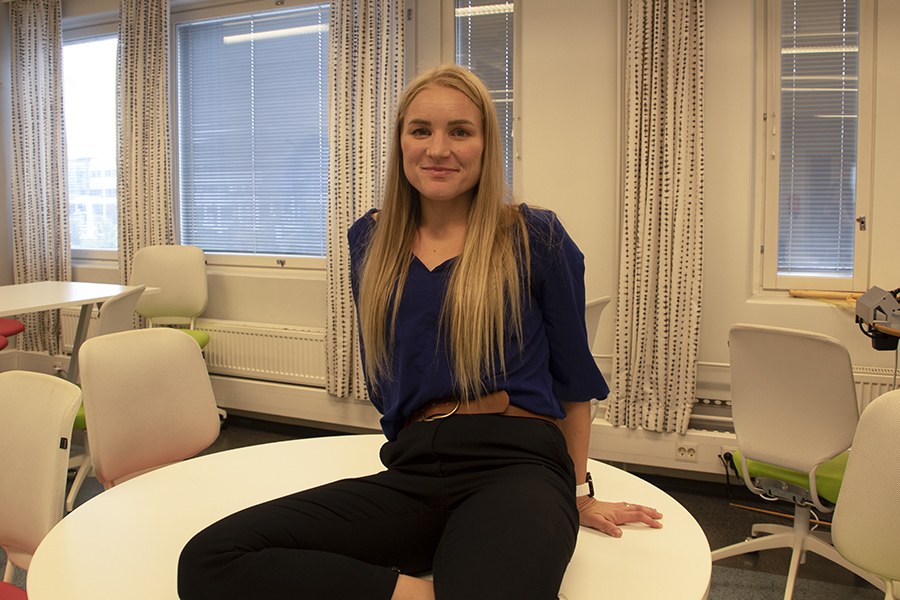The pilot group of Bilingual Nursing Programme leads the way of TAMK’s popular study programme

The pilot group of the bilingual nursing programme develops the new degree programme. The students come from diverse cultural backgrounds; Nigeria, Kamerun, Kenya, Gambia, Iran, Nepal, Pakistan, Russia, Latvia, Taiwan, Turkey and The Netherlands. The start of the studies has gone well.
“I was motivated to apply to this bilingual programme, because I wanted to get a job as a registered nurse in Finland and at the same time improve my Finnish language skill. We are a group of 13 students with different cultural and educational background. We learn lots of things from one another and support each other. This is a positive experience,” student Ruqia Akbari says.
The education has included both theoretical and practical studies. Virva Vasari, Senior Lecturer of Social Services and Health Care and tutor teacher says, that studying nursing and Finnish simultaneously sometimes feels overwhelming for the students. Most of the students in the programme are working at the same time or they have families, which makes balancing with the studies sometimes challenging.
“However, we have actively asked the students about the learning process and listened their opinions. We act based on the students’ feedback. This is a pilot group and the aim is to develop, improve and learn. The students’ feedback is essential in this process,” Vasari emphasises.
Vasari continues that the students who began their studies in January have already had a six-week supervised clinical training with patients. The feedback of the training was very positive and encouraging. Most of the students were also offered a part time job in their training place.
“In addition, their Finnish language took a huge leap forward during the training and the students are now more confident in using Finnish,” Vasari concludes.

Finnish language in the focus
The TOKASA project aims to develop a model for a Nursing degree programme, in which Finnish language teaching is integrated to the Nursing curriculum. The aim is that the studies provide the student the required language skills for working as a nurse in Finland.
Päivi Suominen-Tontti, Senior Lecturer of Pedagogic Innovations and Culture at TAMK says that the starting level of Finnish language skill of the students has varied. Nowadays the students are divided in two different Finnish language classes based on their skills level. The beginners group develops the basic language skills in Finnish. The students in the advanced group are focusing on professional Finnish and the vocabulary related to job search.
Suominen-Tontti is very happy with the activeness and the motivation of the students. The students ask a lot of questions. Additionally, they express their own wishes, for example about the themes of language teaching.
Sanna Laiho, Head of English Degree Programme in Nursing, points out, that nowadays nursing students find work easily, (e.g. work as a care assistant or a substitute nurse), due to the lack of health care staff. However, in Finland a nurse needs to have adequate Finnish language skill to be able to work in health care settings and practice safe patients’ care.
The bilingual Nursing Degree Programme was also the most popular study programme in the joint application of the autumn 2022, based on the number of primary applicants. The number of applicants almost doubled from last year, when the education was in the joint application period for the first time.
Read more about the Nursing Degree Programme: https://www.tuni.fi/en/study-with-us/nursing
Read more about TOKASA project: https://www.tokasa.fi/in-english/
Text: Riikka Mölkänen
Pictures: Emmi Suominen





